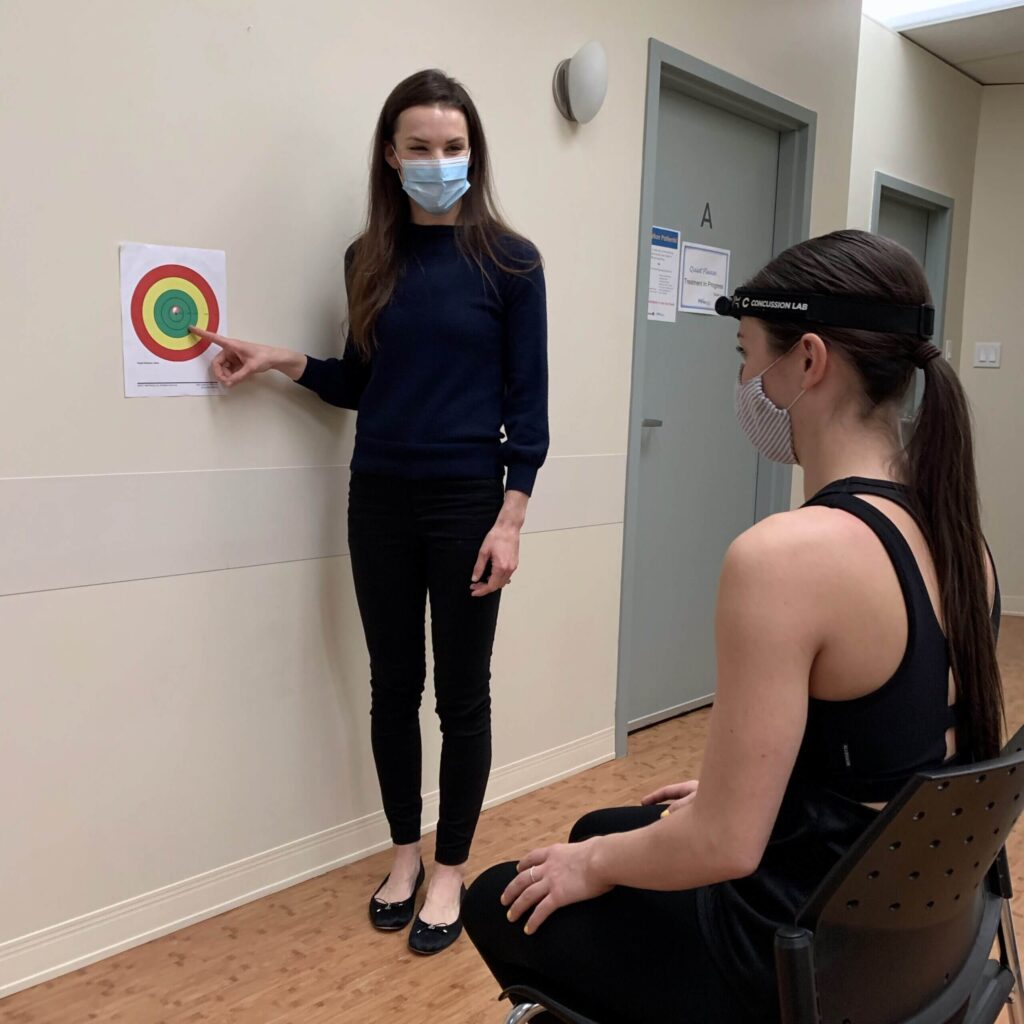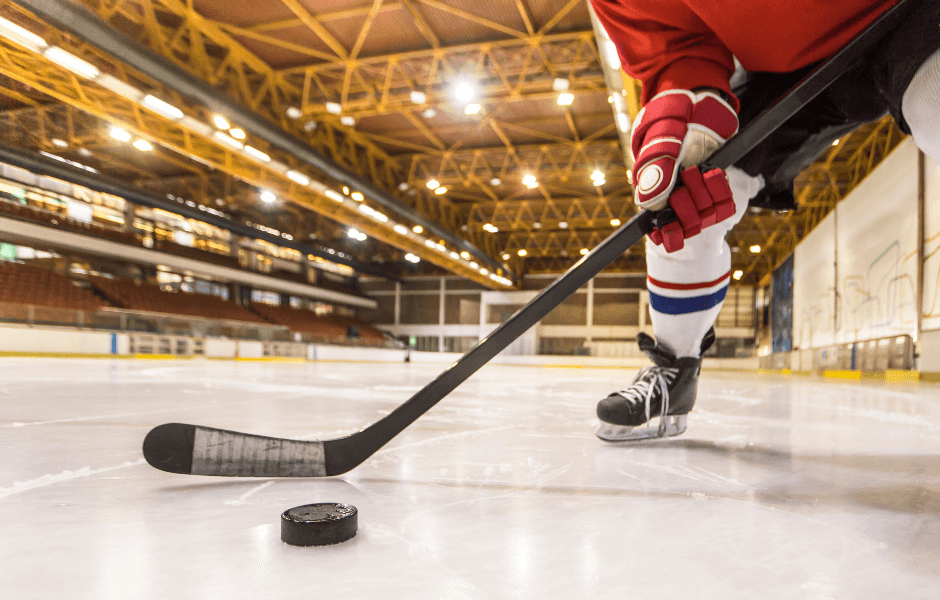How Vestibular Physiotherapy Can Improve Your Dizziness and Balance!


Jennifer McConvey
Jennifer McConvey
Feeling dizzy? You’re not alone….it’s estimated that up to 35% of adults 40 years and older will have vestibular dysfunction at some point in their lives.
Just the other day I had a patient come because their friend gave them our brochure. They had never heard of vestibular rehab. Medication did not work and they thought that they just had to live with their dizziness. But in a matter of just one treatment they were already feeling better!
Vestibular Rehabilitation is a specialized form of therapy that helps identify and treat problems in the vestibular system. For example, it works to reduce vertigo, dizziness, gaze instability, and/or imbalance.
BUT…before I dive into how this is an effective therapy for reducing your symptoms, let’s start with the basics!
What is the Vestibular System?
Most of us take our vestibular system for granted! That is, until we start to feel dizzy and imbalanced, or develop problems like vertigo or double vision.
The vestibular system plays a vital role in most of your daily activities! Moreover, activities like walking, driving and even shopping for groceries, let alone staying active and playing sports would be impossibe without it!
The vestibular system does 2 major things for you:
- It allows you to see clearly during head or body movements
- It plays a major role in keeping your balance, especially when moving.
The actual vestibular organ is located in your inner ear. In fact, it’s one of 3 systems in the body that keep you upright and balanced! The other two are your visual system and your somatosensory system, which involves the sensation you get from your feet!
Your brain gets information from all three systems constantly! This helps you make sense of your environment, coordinate movements, and keep you upright!
Why Is This So Important?
The vestibular system functions automatically in the background. It is part of many important reflexes, meaning when stimulated, it triggers a response without conscious thought! Specifically, the vestibulo-ocular reflex (VOR) and Vestibulospinal reflex (VSR) work to ensure that you have clear vision during head movements and maintain posture and stability.
In sports, your vestibular system is constantly feeding information to your brain. Just think of a hockey player who has to skate forwards, move their head to see the players, then find and track a puck moving along the ice. This is all while moving on an unsteady surface! This is an example of the vestibular system working at its finest!

What happens when your Vestibular System becomes damaged?
Many things can affect the way your vestibular system functions and the way it sends signals to your brain. For example, aging, hitting your head, viral infections, a concussion, migraines or a tumour.
Here are some of the common symptoms you might feel if you have a dysfunction in your vestibular system:
- Dizziness
- Vertigo
- Visual disturbances
- Imbalance
- Motion sensitivity
- Nausea with movement
- Gait instability
- Ringing in your ears (tinnitus)
So how do we right this wrong? There are some medications that may help! But this depends on the source of your symptoms! The most important first step is finding out the source of YOUR imbalance and dizziness. This way you can get the right treatment as fast as possible! A certified vestibular therapist is just the person to help you find the root cause of your problems! And then start some rehabilitation!
What is Vestibular Rehabilitation?

Vestibular rehabilitation therapy (VRT) involves correcting your vestibular dysfunction or teaching you to compensate for your vestibular loss.
For example, goals for VRT are to improve: gaze stability, postural stability, vertigo, and ultimately your activities of daily living!
Manual maneuvers as well as visual and proprioceptive cues (body positioning/movement) are key pieces of VRT. It is important that these are performed under the direction of a specialized vestibular therapist to ensure it resolves the problem and does not make things worse!
Four principle exercise methods are used to decrease vestibular-related symptoms and improve function:
- Canalith Repositioning Maneuvers: To treat BPPV, your therapist will choose the appropriate canalith repositioning maneuver to relocate the displaced otoliths (tiny crystal-like structures). The maneuver consists of a series of head position changes that will ultimately stop the false signals of movement and vertigo that the crystal-like structure was once causing.
- Gaze Stabilization: Gaze Stabilization exercises work to improving your remaining vestibular function. Through gaze stabilization you can improve your visual acuity during head movements and reduce the symptoms of dizziness and vertigo.
- Habituation: Habituation exercises treat self-motion and/or visual stimuli provoked dizziness. They mildly, or at the most moderately, provoke symptoms of dizziness. With compliance and repeated provocation, the intensity of your dizziness will decrease as the brain learns to ignore the abnormal signals it is receiving from the inner ear.
- Balance / Sensory Integration Training: Balance training exercises address imbalance that can be present secondary to one of your 3 balance systems being faulty or dysfunctional. Through balance training your body can learn what cues and information to rely on and ultimately reduce your instability and risk of falling.

Your VRT must be custom tailored to your condition and deficits. Get started on the right treatment for you by seeing a certified vestibular therapist today!
Common conditions VRT can help with:
- BPPV (Benign Paroxysmal Positional Vertigo)
- Vestibular neuritis
- Labyrinthitis
- Unilateral or Bilateral Vestibular Hypofunction
- Vestibular migraine
- Meniere’s disease
- Persistent Symptoms Post Concussion
- Persistent Postural Perceptual Dizziness (PPPD)
- Cervicogenic Dizziness
- Mal de Debarquement Syndrome (MdDS)
- Vestibular dysfunction secondary to stroke
- Age-related declines in vestibular function
- Acoustic Neuroma
- Perilymph Fistulas
How VRT at PhysioPlus can help you!

VRT at PhysioPlus Health Group involves you working 1-on-1 with a certified vestibular therapist.
But what should you expect when you show up to clinic? Your first appointment consists of a comprehensive clinical examination where we will review your history, ask about your symptoms and how they have impacted your life.
Secondly, an inner ear function assessment is performed after the initial consultation. This entails examining your balance, eye movements, and reflexes that involve the head and eyes. This includes positional testing to rule in/out BPPV.
From there, a thorough neurological exam is an important part to not only identify the underlying cause of your symptoms, but also to identify any underlying conditions that may warrant a referral to your doctor. Your therapist will also examine your gait, cervical spine (neck) and leg stability.
At PhysioPlus, we have Dizziness, Vertigo and Balance Clinic. We use advanced equipment that allows us to assess any underlying vestibular involvement that can often be suppressed or not seen in room light.
After your initial evaluation, you can expect to have a good understanding of your diagnosis. Based on this, you and your physiotherapist will develop a plan of care designed to reduce your symptoms, improve your daily function, and ultimately get you back to the things you love most in life!
So, if you would like to book an appointment today to see our certified vestibular therapist, call us at 416-760-8280.
Too dizzy to travel to our clinic? Get started with a virtual appointment and transition to in person when you are feeling up to it!
